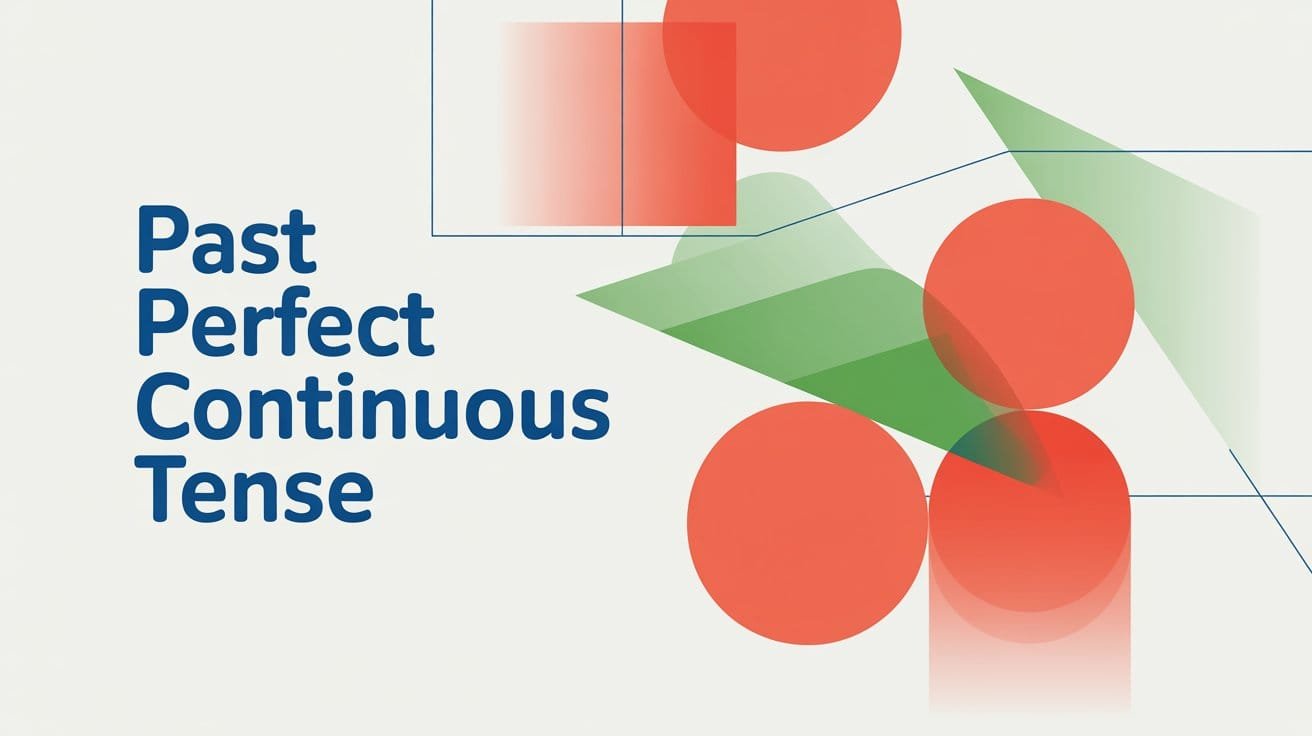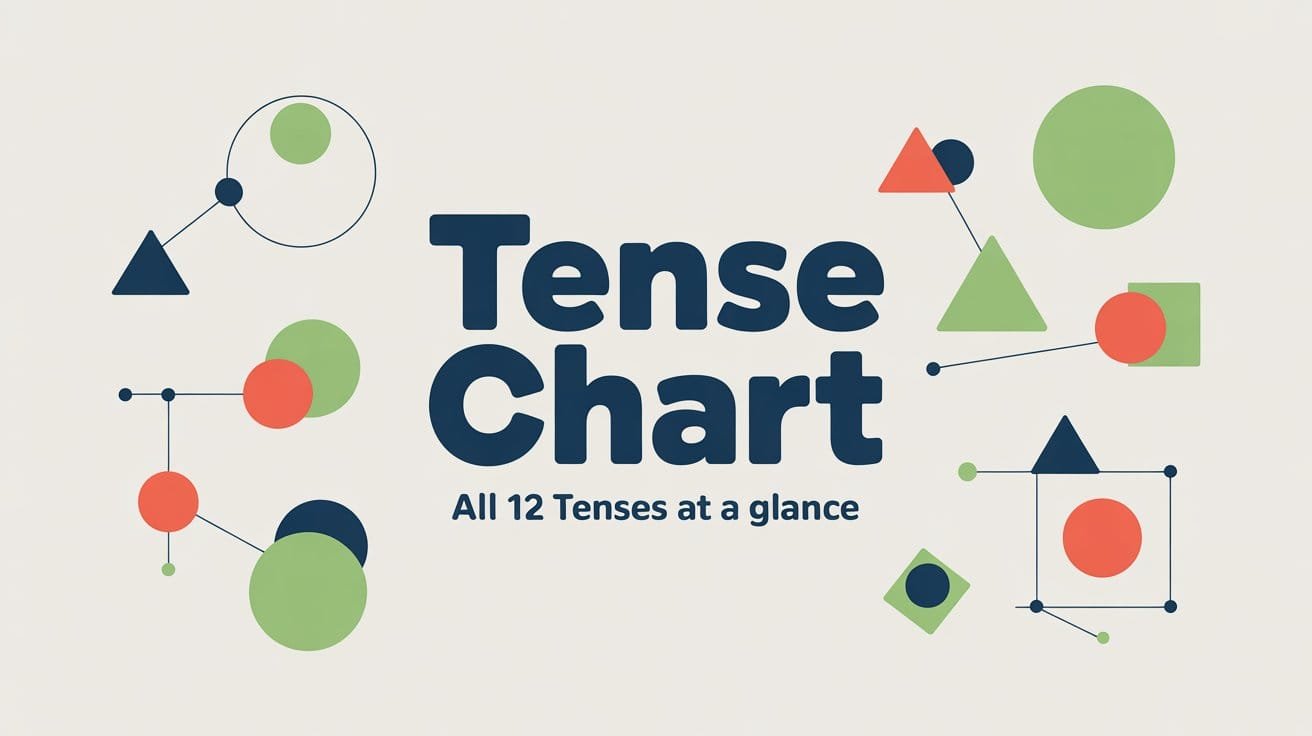The past perfect continuous tense describes an action that was ongoing over a period of time before something else happened in the past. It helps explain how long something had been happening before a second past event occurred.
For example: “She had been studying for three hours before the exam began.” This sentence tells us the action (studying) started in the past and continued until just before the exam. This tense is useful when you want to show duration, cause, or background in past situations.
Structure of the Past Perfect Continuous Tense
The past perfect continuous tense is used to describe actions that were happening over a period of time before something else occurred in the past. It’s formed using had been + verb-ing.
This structure is the same for all subjects.
Affirmative Sentences
Structure:
Subject + had been + verb-ing
Examples:
- I had been working on the project for two weeks before the meeting.
- She had been studying all night before the exam started.
- They had been traveling since morning when they arrived.
- We had been talking for hours before we realized the time.
Negative Sentences
Structure:
Subject + had not been + verb-ing
Examples:
- He had not been sleeping well before the trip.
- They hadn’t been practicing regularly before the match.
- She had not been feeling well for days.
- I hadn’t been paying attention during the lecture.
Interrogative Sentences
Structure:
Had + subject + been + verb-ing?
Examples:
- Had he been exercising regularly before the injury?
- Had you been waiting long before the bus arrived?
- Had she been working on the report before it was canceled?
- Had they been arguing before the teacher entered the room?
Usage of the Past Perfect Continuous Tense
The past perfect continuous tense is used to highlight the duration or cause of an action that was happening before a certain point in the past. It helps give background or explain what led to another event.
To Show Duration Before a Past Event
Use this tense to explain how long something had been happening before something else occurred.
Examples:
- I had been studying for two hours before my friend called.
- She had been living abroad for five years when she returned home.
- They had been working together for months before the company closed.
To Express Cause and Effect in the Past
This tense can explain why something happened by showing the earlier action.
Examples:
- He was tired because he had been running.
- The room was messy because they had been painting all day.
- Her hands were sore because she had been writing for hours.
To Set the Scene in Narratives
It helps describe the background or ongoing situation before a past event.
Examples:
- It had been snowing for hours when the power went out.
- We had been waiting quietly before the announcement was made.
- The kids had been playing in the yard before it started to rain.
Common Time Expressions with the Past Perfect Continuous
Time expressions help make it clear that the action was ongoing over a period of time before something else in the past happened. The past perfect continuous tense often pairs with phrases that indicate duration or timing.
Common Expressions
- for
- since
- before
- until
- by the time
- when
- all day / all night / all morning
- how long
Examples
- She had been practicing for three hours before the performance.
- We had been waiting since noon.
- He had been working on the task until it was canceled.
- They had been studying before the teacher arrived.
- By the time we got there, they had been talking for a while.
- I asked him how long he had been living in that city.
Practice Tips for Using the Past Perfect Continuous Tense
This tense can feel complex at first, but it becomes easier with focused practice, especially when you’re describing background situations, explaining causes, or showing time duration in the past.
Describe Past Duration with “for” and “since”
Think of actions that were happening over time before another event.
Example:
- I had been working for five hours before I took a break.
- She had been living there since 2015, when she moved.
Use It to Explain Causes
Practice linking results to past continuous actions.
Example:
- He was out of breath because he had been running.
- The kitchen smelled amazing because they had been baking.
Try Story Starters
Begin a story with a background action in this tense.
Example:
- We had been hiking all morning when it suddenly started to rain.
Ask and Answer with “How long…”
Build fluency by forming questions and responses.
Example:
- Q: How long had you been learning English before you moved abroad?
- A: I had been studying it for two years.
Frequently Asked Questions About the Past Perfect Continuous Tense
What does the past perfect continuous tense show?
It shows that an action was happening over a period of time before something else occurred in the past.
Example: She had been working all day before the guests arrived.
How is the past perfect continuous formed?
Use had been + verb-ing.
This structure is used with all subjects.
Example: They had been traveling for hours before they stopped to rest.
What is the difference between past perfect and past perfect continuous?
Past perfect focuses on the completion of an action.
Past perfect continuous focuses on the duration or ongoing nature of that action.
Examples:
He had written five pages before lunch. (past perfect)
He had been writing since morning. (past perfect continuous)
Can we use time expressions like “for” and “since” with this tense?
Yes, they are commonly used to show how long the action continued.
Example: I had been working for six hours.
Example: She had been waiting since noon.
Is the past perfect continuous used with non-action verbs?
Usually not. Verbs that describe states (like know, believe, own) are not used in continuous forms.
Incorrect: He had been knowing the answer.
Correct: He had known the answer.



